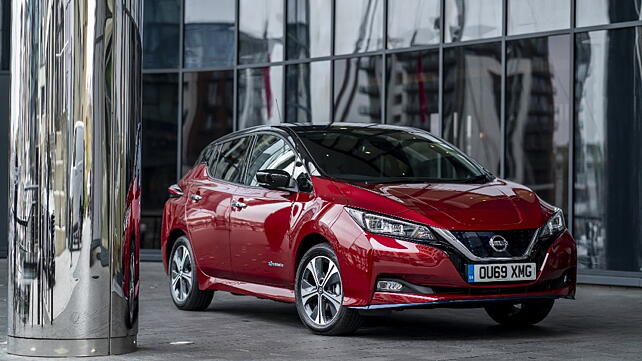
The electric car market is expected to grow at a CAGR of 37.1% from 2021 to 2028 to reach $1.9 trillion by 2028, reports Meticulous Research.
According to the company, which is a leading provider of premium market intelligence in North America, Europe, Asia-Pacific, Latin America, and the Middle East & Africa, the electric car market, by volume, is expected to grow at a CAGR of 36.2% from 2021 to 2028 to reach 69.3 million units by 2028.
As per the report titled Electric Car Market by Propulsion Type (BEV, FCEV, PHEV, HEV), Power Output (Less Than 100kW, 100 kW to 250 kW), End-use (Private, Commercial), and Geography — Global Forecast to 2028, the major factors driving the growth of the electric cars market include supportive government policies and regulations. Besides, it is also due to increasing investments by leading automotive OEMs, rising environmental concerns, and decreasing prices of batteries.
Moreover, the growing adoption of autonomous driving vehicles provides significant opportunities in this market. However, the lack of charging infrastructure in developing countries obstruct the growth of this market to some extent. Also, range limitations of electric vehicles, lack of fast-charging infrastructure, and high cost of electric vehicles are major challenges for the growth of the electric cars market.
Impact of COVID-19
The outbreak of COVID-19 slowed down vehicle sales in 2020, including electric cars. The adoption of electric cars in the US had fallen in the first and second quarters of 2020, while a slight growth was witnessed post the second quarter. Consumer behaviour has changed significantly since the pandemic. People reduced the use of shared mobility services, and the total miles driven also decreased in 2020 due to remote working arrangements in most industries. The electric cars market in Asia-Pacific was moderately affected. Developing countries witnessed a sharp decline in their economy due to low consumer demands and increased prices for essential commodities, which directly affected the adoption of electric cars in these countries. The high cost of electric cars also remained a restraining factor for the market's growth in these countries, the report said.
However, the electric cars market is expected to recover quickly due to China's strong growth. In the country, amidst the pandemic situation, the government announced to phase out conventional internal combustion engine vehicles by 2035 and planned numerous strategies to achieve its target.
According to Meticulous Research, the electric cars market in Europe is moderately affected due to the strong policy support as 2020 was an important target year for emissions standards. The government supported the automotive industry by regulating policies that benefitted both consumers and manufacturers. Incentives and subsidies were notably increased on purchasing an electric car in the countries like Germany, the UK, and Norway. Besides, the prices for batteries continued to reduce, which helped increase the adoption rate of electric cars in the region. The sale of electric cars was doubled in 2020, as compared to the previous year.
Segmentation
The electric cars market is segmented based on propulsion type, power output, end-user, and geography. The study also evaluates industry competitors and analyses the market at the country level.
Based on propulsion type, the hybrid vehicles segment accounted for the largest share of the overall electric car market in 2020. The large share of this segment is mainly attributed to increasingly stringent automotive emission regulations, consumer demand for high fuel efficiency vehicles, increasing investments by automotive OEMs for hybridisation of vehicle powertrain, and low cost of hybrid vehicles compared to battery electric vehicles. However, the fuel cell electric vehicles segment expected to grow at the highest CAGR during the forecast period.
Based on power output, the less than 100 kW segment accounted for the largest share of the overall electric car market in 2020. The large share of this segment is mainly attributed to the increasing use of light electric cars in central business districts of major cities across the world, increasing implementation of electric cars for shared mobility services in major cities, decreasing battery prices, and increasing investments by electric vehicles start-ups in this segment. However, the 100 kW to 250 kW segment is expected to grow at the highest CAGR during the forecast period. The rapid growth of this segment is mainly attributed to the increasing initiatives by leading automotive OEMs to launch powerful electric cars and increasing regulations to reduce tailpipe emissions.
Based on end-use, the private use segment accounted for the largest share of the overall electric car market in 2020. The large share of this segment is mainly attributed to increasing consumer demand for fuel-efficient and zero tailpipe emission vehicles, government incentives to promote sales and manufacturing of electric cars, tax rebates, the decline in battery costs, and increasing fuel prices. However, the commercial use segment is expected to grow at the highest CAGR during the forecast period. The rapid growth of this segment is mainly attributed to the increasing use of electric cars in shared mobility services and corporate taxi fleets.
Geographically, the Asia-Pacific region accounted for the largest share of the global electric car market in 2020 by value and volume. The large share of this region is primarily attributed to increasing demands for EVs and associated charging facilities, the growing number of start-ups offering numerous solutions and services in the electric mobility industry, attractive incentive programmes for electric car buyers, and the presence of regional core competencies of countries such as China, Japan, South Korea, and India in manufacturing and technological developments. China is expected to dominate the Asia-Pacific market through 2028, mainly due to extensive government support for adopting electric mobility and increasing investments by foreign automotive OEMs in the Chinese electric vehicle industry.
Courtesy: Meticulous Research
Photo is representational; courtesy: Nissan.